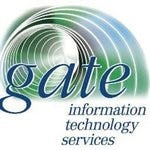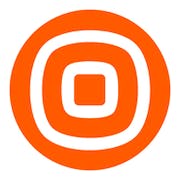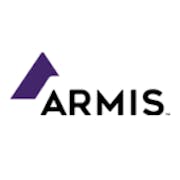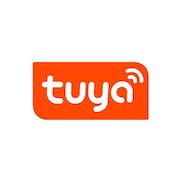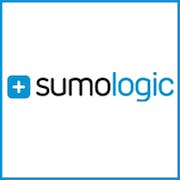Are you looking for the best internet of things (IoT) software for your business? Our comprehensive buyer's guide shares insights on features and key considerations to help you make the right choice.
The world’s connectivity is expanding at an unprecedented rate, and it is near impossible to keep up with the plethora of devices in circulation. The advent of IoT has presented countless opportunities and innovations for businesses globally. The IoT, as we know it today, is a network of physical objects embedded with sensors, software, and other integrations, which enables these devices to connect and exchange data. As IoT technology grows increasingly ubiquitous, it is crucial for businesses to keep pace with ever-evolving software solutions. SonicWall Capture Labs threat researchers noted a continued increase in the amount of IoT malware in the first half of 2023, jumping 37% to 77.9 million. In this buyers guide, we will provide you with all the information you need to make an informed decision for your business.
What is internet of things (IoT) software?
The world is increasingly becoming more connected, and every day new devices are being created that can be controlled and monitored over the internet. This is where the Internet of Things (IoT) comes in, making it possible to collect data from devices and analyze it to improve business operations.This technology enables communication between devices and delivers data from the sensors to the cloud for analysis. It is used to collect data from remote devices, analyze the data collected, and then provide real-time insights that can be used to make informed decisions. The solution is critical for companies that want to improve their operations by increasing efficiency, optimizing processes, and reducing costs.
Some of its common use cases include:
- Industrial automation: Many manufacturing processes need a high level of automation to improve efficiency, reduce errors, and cut costs. By using an IoT tool, factory automation can be achieved, resulting in optimized production and better overall quality control. Statistics from Review42 reflect that building automation is among the fastest-growing segments as far as IoT applications are concerned, and it is expected to grow by an astonishing 42%.
- Asset tracking: Companies use IoT technology to track and monitor their valuable assets, such as vehicles, equipment, and inventory. This helps avoid theft or loss, and also makes it easy to locate and deploy the resources where they are needed.
- Smart homes: It is used to automate, monitor, and control home appliances such as thermostats, security systems, and lighting. Homeowners can use their smartphones to control their homes from anywhere in the world.
- Agriculture: The systemis used in precision farming to collect data from sensors that monitor soil moisture, temperature, and humidity. This helps farmers to optimize irrigation, fertilization, and planting, and consequently improve crop yield.
A wide variety of companies across different industries use this program and some of the common companies using it include:
- Manufacturing companies: These companies use it to automate their production lines and make their factories more efficient.
- Transportation companies: They use it to track and optimize the movement of goods, vehicles, and assets.
- Healthcare providers: They use IoT platforms to remotely monitor patient health, improve medication management, and streamline operations.
- Retailers: They use IoT software to track inventory levels, manage the supply chain, and optimize the customer experience.
What are the benefits of an internet of things (IoT) solution?
IoT is an ecosystem of interconnected devices and machines that offers some powerful benefits and here are the main ones:
- Improved operational efficiency: IoT software can optimize workflows, automate processes, and reduce human intervention, leading to increased accuracy and consistency and significantly cutting down on operational costs. Dataprot stats show that 83% of organizations have improved their efficiency by introducing IoT technology.
- Enhanced data analytics: IoT technology can collect vast amounts of data, which can be analyzed in real-time to gain insights into operations, customer behavior, market trends, and more, allowing businesses to make informed decisions that drive growth.
- Greater customer satisfaction: It can help businesses provide a personalized and seamless customer experience by leveraging real-time data to identify customer needs, preferences, and behavior, and offering tailored solutions that enhance customer satisfaction.
- Increased revenue streams: The solution can enable businesses to develop new revenue streams by creating innovative services and products that leverage the capabilities of IoT technologies.
- Increased safety and security: An IoT system can help improve safety and security protocols by monitoring equipment performance, detecting anomalies, and alerting businesses in real-time to prevent accidents or security breaches.
10 key features of internet of things (IoT) software
IoT software solutions are purpose-built applications, platforms, and middleware that allow organizations to gain greater visibility across their devices, monitor device health, optimize usage, and automate critical business processes. This key component in enabling devices and applications to connect offers a wide variety of features which includes:
1. Device management:
One of the key features of IoT software is their ability to manage and control devices remotely. This includes device activation, configuration, firmware updates, security assessments, and more.
2. Real-time data analysis:
It enables businesses to capture and analyze valuable data from IoT devices in real-time. This helps them gain real-time insight and make better decisions based on data-driven insights.
3. Cloud integration:
It typically integrates with cloud platforms like AWS, Azure, or Google Cloud to store and process the data. These cloud integrations provide businesses with greater agility, scalability, and security.
4. Machine learning:
Machine learning is often used in IoT technology to sift through massive amounts of data to identify patterns, anomalies, or opportunities that can inform business decisions.
5. Predictive analytics:
Some solutions can use predictive analytics to forecast future trends and help businesses make better decisions, optimize resources, and avoid costly failures.
6. Data visualization:
An IoT program often provides data visualization capabilities through dashboards or reports to help visualize real-time device data in a user-friendly format. This allows business users to quickly spot issues and take action as needed.
7. Security management:
It also includes security features that protect devices and the data they collect. These features can include encryption, access control, and secure communications to mitigate potential security threats.
8. Multi-platform support:
The system typically supports multiple operating systems and devices, including iOS, Android, and Windows. This allows businesses to monitor and manage their devices from a centralized system, regardless of the device platform.
9. Integration with 3rd party systems:
Many IoT software solutions can integrate with third-party systems such as enterprise resource planning (ERP), supply chain management (SCM), and customer relationship management (CRM) systems for a complete end-to-end solution.
10. Proactive maintenance:
The package can monitor and analyze device health data in real-time. This proactively alerts businesses when a device is failing or about to fail and provides early warning signals to avoid lost productivity, revenue, and customer satisfaction.
Things to consider when investing in an internet of things solution
In a world where connectivity and data are increasingly crucial for business operations, Internet of Things (IoT) technology has become a game-changer. IoT software presents a unique opportunity for businesses to harness data collected from internet-connected devices to optimize processes, improve decision-making, and enhance customer experiences. However, with a wide range of options in the market, businesses need to be strategic in choosing the right one that meets their specific needs. Here are several factors businesses can consider to make a purchase decision.
1. Security
With cyber threats on the rise, it's essential to choose a tool that prioritizes security. The software should feature strong encryption, data authentication, and access control to prevent unauthorized access. Additionally, it should undergo frequent security updates to stay ahead of potential threats.
2. Scalability
The IoT market is projected to grow at an exponential speed, and businesses need to choose solutions that can scale effectively to accommodate future expansion. The application you select should allow for the integration of new devices and data streams without requiring extensive reconfiguration.
3. Compatibility
It should work seamlessly with the business's existing processes, hardware, and software. Before purchasing an IoT platform, consider how it will integrate with other systems and ensure it's compatible with the necessary programming languages and protocols.
4. Analytics capabilities
The ability to analyze the vast amounts of data generated by IoT devices is crucial to deriving meaningful insights. Businesses should look for IoT systems that offers sophisticated, intuitive analytics tools that can process, visualize, and glean valuable insights from data in real-time.
5. Support and training
Good customer support and comprehensive training are essential when investing in IoT technology. The software provider should have an excellent reputation for customer service and offer robust training resources to help employees learn how to use the platform effectively.
Emerging trends for internet of things (IoT) software
The internet of things (IoT) continues to be a dominant technological trend, and new developments in software are shaping its future. The growth of IoT has necessitated a discussion on the software-side of things, and businesses need to be aware of the most important trends shaping the IoT industry today.
- One of the most significant trends is the adoption of blockchain technology, which can help ensure the security and integrity of IoT data. Smart cities are also poised to change the game, with intelligent infrastructure driving efficiency and cost savings. 5G-powered IoT devices will become increasingly important, as the global rollout of 5G networks accelerates. Additionally, traffic management systems will use IoT sensors and software to reduce congestion and improve safety on the roads.
- IoT-empowered AI applications are changing the game across industries and will continue to do so in 2024 and beyond. Digital twins, or virtual replicas of physical objects or systems, are enabling predictive maintenance and troubleshooting, among other use cases. Voice-activated IoT devices will become even more mainstream, revolutionizing user experiences and intuitive control.
- As IoT continues to proliferate, cybersecurity remains a top concern. Leading companies are focusing on IoT security, ensuring that devices and systems are secure and protected from hacking and other threats. Finally, edge computing and the metaverse, both exciting developments in their own right, will revolutionize data processing and immersive digital experiences. As companies increasingly rely on IoT to drive success, understanding and adopting these trends will be crucial for staying ahead of the curve.
Conclusion
To summarize, staying informed about the latest advancements and trends in IoT will keep you ahead in this dynamic field. By leveraging these technologies, you can unlock new possibilities, enhance efficiency, and drive innovation in various sectors, from healthcare and agriculture to smart cities and industrial automation. In essence, IoT software is not just about connecting devices; it's about creating a smarter, more interconnected world. By understanding and implementing the principles and best practices outlined in this guide, you can develop robust IoT solutions that deliver value, improve lives, and contribute to a more intelligent and sustainable future.

